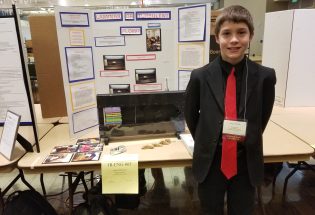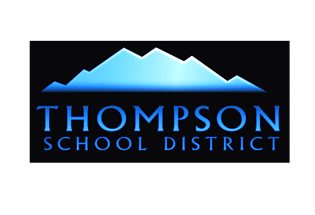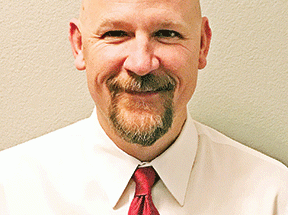Commentary: An open letter to the community
 By Bob Kerrigan
By Bob Kerrigan
Thompson Valley School District
Board of Education President
As your Thompson School Board president, I wanted to share some of the exciting things in which your board has been able to invest. We are piloting entrepreneurship classes, have invested in our agricultural education program, and are looking at offering dual language programs. I am proud of the new and expanded choices we are able to offer our students to assure every student has access to a quality education that prepares them for their future.
In addition to expanding choices for our students, your board has invested in our staff. We provided raises last year to all our staff and picked up the increases in their health care and retirement costs. In addition, jointly with the teachers association, the board approved a pay-for-performance bonus that each of our employees qualified for last year. The dollars were paid to employees who invested in themselves.
We have been able to make these great investments because of the prudent underspending of previous school boards who have built a healthy a reserve savings account. Due to this, the Thompson board has been deficit spending, or taking money out of our savings to support these great investments. Many of you may know that in December of 2014 the governor’s requested budget of K-12 education included onetime funds of nearly $200 million. However, the legislature has slashed those dollars to less than $25 million. While the budget process at the state is not complete, this drastic move, combined with the large decreases in the district reserves, has led to many of you asking the board to stop our deficit spending. Based on the large spend down of the district reserves, this seems a prudent move.
As you know, a significant portion of our spending is on personnel costs, and those are negotiated with our teachers association, This year’s negotiation process. It is significantly different from previous negotiations due to the passage of a new law known as Proposition 104.
This law states that district-association negotiations must be held in public. In practice, the law means we cannot operate or discuss any part of negotiations — even strategies — behind closed doors. The law covers board members and joint board/staff association conversations, but TEA is not bound by any such restrictions.
As in previous years, the board has set the direction for where we would like to go by asking questions and submitting topics consented to by a majority of the board. These questions and topics reflect what we believe are the most important issues for our district, and the focus has been on doing what’s best for our kids while striving for fiscal responsibility and accountability to the district’s taxpayers.
It has not been an easy process for anyone involved, and at times the discussions seem to be guided by a resistance or fear of change. For instance, when questions were recently raised regarding TEA’s exclusive access to district facilities and communications systems, district dues deduction for the association, and the high cost of some programs not related to student success, several members of the board called the issues trivial and insisted that addressing them is unimportant. However, with our increased need to assure we do not continue our large deficit spending, we should be assuring that every dollar spent is getting our students access to a great education. The question we should be asking in every stage of negotiation is “How does this help our students?”
Despite reports that TEA asked for no raises this year, the request for the board to give each teacher a step and column raise actually represents a 2.7 percent ($1,169,860.00) compensation cost increase. This is pay structure which rewards teachers for years of service, and the education they have received does not reward our very high-performing teachers well and has lower starting salaries for new teachers than our neighboring districts. I’d like to see the district move toward new compensation systems that reward innovation and excellence versus “years of experience” for teachers. A strategic compensation pilot would be a great step forward, especially if it allows Thompson to test models that already exist and are being successful in attracting great teachers and improving student achievement in places like Denver, Eagle and Harrison.
Since I joined the board, the district’s spending has increased from $110 million a year to $125 million today, with over 80 percent of the budget going to employee compensation. Our deficit spending this year was more than $5 million, and we have $370 million in building-related capital needs. While some blame the state for our current financial trouble and others call for raising taxes to cover our costs, the truth is that it is our responsibility to manage our budget as the revenues are projected. We can wish for a stronger economy, or for the legislature to not keep our money in their savings, but we must budget for what we have. It’s time for us to get serious about stopping our deficit spending in Thompson, and as compensation is 80 percent of our costs, these conversations must start in negotiations.
As negotiations proceed, we as a district are going to have to make some tough decisions to reduce our costs or we will start to see cuts to programs in which we have made strategic investments. Some of the district’s approximate annual $16,000,000 PERA burden, may need to be shouldered by our employees as was intended by the 2010 legislations, in order to make sure we have the money needed to serve our kids. We will also need to look carefully at other areas to save, such as the district’s severance program. Severance payments this year are $1.9 million, and looming on the horizon is another $11 million in severance liabilities if nothing is done with severance. These are dollars which go to our retired staff and, while I believe we should honor those commitments, we must also ask how much longer we can afford to keep increasing these payments.
I will continue working with our staff, Superintendent Stan Scheer, and my fellow board members as the negotiation process moves forward. It is critically important that we begin to make responsible, hard decisions about our district budget and our contract with TEA. If you have thoughts on how to stop our deficit spending and put more money in classrooms, please share them with the board. Students must be the unwavering focus as we move forward. We must do our best to put more money in classrooms. Our children are counting on us.
Editor’s note: The thoughts expressed in this article are mine alone and do not reflect the voice of the school board.
- May, 02 2019

Berthoud trustees ask TSD to help fun...
By Dan Karpiel The Surveyor Anytime a governmental body takes in more money tha it...
- May, 20 2022

TMS student Jacob Kossler wins four a...
Photo by Amy Kossler - Jacob Kossler, 12, a sixth-grader at...
- August, 19 2021

Thompson School District votes on mas...
Dear Thompson community: On Wednesday evening at their regular meeting, the Thompson School District Board...
- September, 06 2018

Ivy Stockwell tops Berthoud, R2-J in ...
By Dan Karpiel The Surveyor Berthoud’s Ivy Stockwell Elementary School earned a 98.6 rating (out...
- April, 27 2023

Berthoud robots target Dallas — Criti...
Photo by Will CorneliusMilo Elliot, Indira Moss and Piper Moss (right)...
- April, 20 2017

BHS hires Richard Harris as new princ...
By Aaron Reynolds The Surveyor Berthoud High School (BHS)...
- Asher Architects builds projects from...

- More than a market, a family legacy

- Colorado business confidence is impro...

- Community Calendar & Legal Notice...

- Community Calendar & Legal Notice...

- Community Calendar & Legal Notice...


Unified basketball comes to Turner Middle School
Community News

Mike Grace says goodbye as Brett Wing joins town board
Community News
POLICEBLOTTER
Community News
Northern Water sets C-BT quota at 70% for 2024
Community News

Emotions run high during Revere Property hearing
Community News
Snowpack at 119% above normal
Community News

Karspeck to serve third term as Berthoud mayor
Community News
COMMUNITY CALENDAR:
Community Calendar – add an event
Homestead Fine Art Gallery First Fridays OPEN HOUSE
03 May 4:00 PM - 7:00 PM
Homestead Fine Art Gallery First Fridays OPEN HOUSE
07 Jun 4:00 PM - 7:00 PM
Homestead Fine Art Gallery First Fridays OPEN HOUSE
05 Jul 4:00 PM - 7:00 PM
Homestead Fine Art Gallery First Fridays OPEN HOUSE
02 Aug 4:00 PM - 7:00 PM
Homestead Fine Art Gallery First Fridays OPEN HOUSE
06 Sep 4:00 PM - 7:00 PM
Homestead Fine Art Gallery First Fridays OPEN HOUSE
04 Oct 4:00 PM - 7:00 PM













